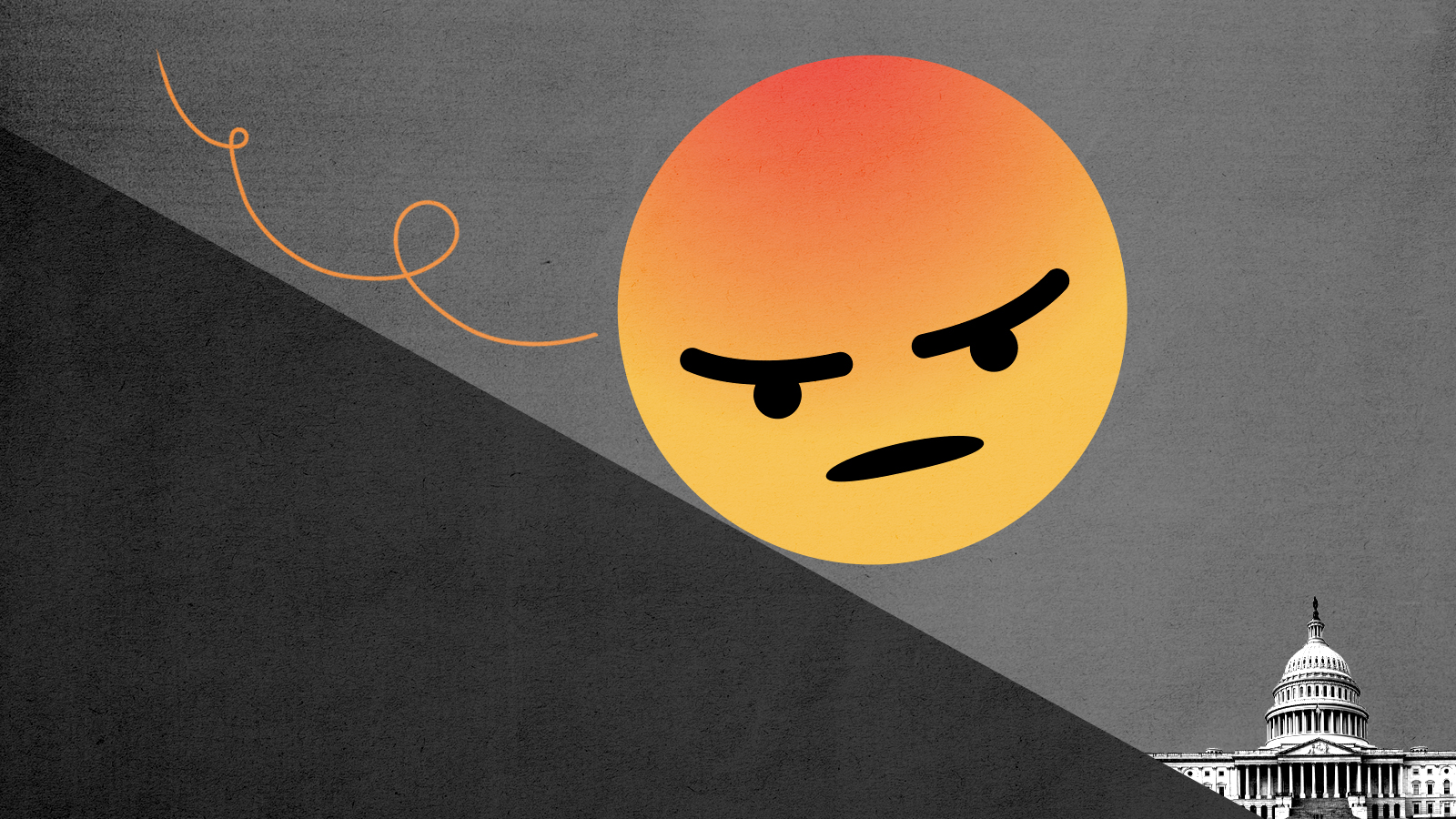Why is political discontent destabilizing the democratic world?


A free daily email with the biggest news stories of the day – and the best features from TheWeek.com
You are now subscribed
Your newsletter sign-up was successful
We have many ways to describe the turbulent character of the political present: the populist moment, democratic backsliding, the authoritarian turn. But if a new analysis of global trends in public opinion from the Pew Research Center is correct, it might be more accurate to say that ours is primarily a time of rising political discontent.
Pew's core finding is that large numbers of people in a long list of countries are dissatisfied with how their democracies are working — and this restlessness is fueling a drive for more radical change. As Pew puts it, "A median of 56 percent across 17 advanced economies surveyed in 2021 say their political system needs major changes or needs to be completely reformed. Roughly two thirds or more express this opinion in Italy, Spain, the U.S., South Korea, Greece, France, Belgium, and Japan."
That's a lot of discontent and a lot of potential political radicalism directed against an unhappy status quo.
The Week
Escape your echo chamber. Get the facts behind the news, plus analysis from multiple perspectives.

Sign up for The Week's Free Newsletters
From our morning news briefing to a weekly Good News Newsletter, get the best of The Week delivered directly to your inbox.
From our morning news briefing to a weekly Good News Newsletter, get the best of The Week delivered directly to your inbox.
The most pressing and mysterious question left unanswered by these findings is: Why is this happening now, and why in so many different places at once?
Journalistic and scholarly examinations of present gloominess tend to focus on the specific discontents of single countries: Americans elected former President Donald Trump because Democrats moved left on cultural issues, alienating working-class voters. The U.K. voted for Brexit because of overly intrusive bureaucrats in Brussels. A plurality of Hungarians support Viktor Orban's antiliberal nationalism in reaction to post-Cold War depopulation. And so forth.
Yet the simultaneous rise in dissatisfaction across so much of the globe seems to point to a single change or set of changes at work nearly everywhere. One possibility is that governments truly are becoming worse at getting things done and representing people's interests. Another is that public expectations for competence and representation are rising, leading to increasing discontent with fairly typical outcomes. Both things could, of course, be happening at the same time as well.
But why would that be? What could be making governments more inept or democratic citizens more impatient (or both) in so many places at once?
A free daily email with the biggest news stories of the day – and the best features from TheWeek.com
As I've argued on previous occasions, the single most likely candidate is social media. It helps both to unite and divide people within and across national boundaries in new, expected ways that can cause political instability. It's possible the ubiquity of smart phones and social media apps is behind much of the rising discontent, though more study and analysis will be required to establish the truth of the thesis, let alone to begin devising effective responses.
In the meantime, Pew's trove of data is a great place to start.
Damon Linker is a senior correspondent at TheWeek.com. He is also a former contributing editor at The New Republic and the author of The Theocons and The Religious Test.
-
 6 of the world’s most accessible destinations
6 of the world’s most accessible destinationsThe Week Recommends Experience all of Berlin, Singapore and Sydney
-
 How the FCC’s ‘equal time’ rule works
How the FCC’s ‘equal time’ rule worksIn the Spotlight The law is at the heart of the Colbert-CBS conflict
-
 What is the endgame in the DHS shutdown?
What is the endgame in the DHS shutdown?Today’s Big Question Democrats want to rein in ICE’s immigration crackdown
-
 Epstein files topple law CEO, roil UK government
Epstein files topple law CEO, roil UK governmentSpeed Read Peter Mandelson, Britain’s former ambassador to the US, is caught up in the scandal
-
 Iran and US prepare to meet after skirmishes
Iran and US prepare to meet after skirmishesSpeed Read The incident comes amid heightened tensions in the Middle East
-
 Israel retrieves final hostage’s body from Gaza
Israel retrieves final hostage’s body from GazaSpeed Read The 24-year-old police officer was killed during the initial Hamas attack
-
 China’s Xi targets top general in growing purge
China’s Xi targets top general in growing purgeSpeed Read Zhang Youxia is being investigated over ‘grave violations’ of the law
-
 Panama and Canada are negotiating over a crucial copper mine
Panama and Canada are negotiating over a crucial copper mineIn the Spotlight Panama is set to make a final decision on the mine this summer
-
 Why Greenland’s natural resources are nearly impossible to mine
Why Greenland’s natural resources are nearly impossible to mineThe Explainer The country’s natural landscape makes the task extremely difficult
-
 Iran cuts internet as protests escalate
Iran cuts internet as protests escalateSpeed Reada Government buildings across the country have been set on fire
-
 US nabs ‘shadow’ tanker claimed by Russia
US nabs ‘shadow’ tanker claimed by RussiaSpeed Read The ship was one of two vessels seized by the US military
